
An HVAC warranty functions as a formal agreement between the customer and the equipment manufacturer, aiming to provide coverage against defects and operational issues over a specific timeframe. The significance of a reliable HVAC warranty lies in its capacity to offer peace of mind and financial security in unforeseen instances of system malfunctions.
With a dependable warranty, homeowners gain the assurance that their heating and cooling apparatus is shielded, curtailing repair or replacement expenses while ensuring a comfortable living environment. Recognizing the value of a comprehensive HVAC warranty can enable homeowners to make informed choices when investing in a new heating or air conditioning system.
Grasping Various Categories of HVAC Warranty Coverage
Contents
It is essential for homeowners to comprehend the different categories of HVAC warranties when purchasing a new heating and cooling unit. One should thoroughly review the details of coverage, duration, and terms associated with each type of warranty. By doing so, customers can make prudent decisions that safeguard their investment and offer a hassle-free experience with their HVAC system.
Related Article: How HVAC Comfort Zones Cut Energy Costs
Manufacturer’s Heating & Cooling Warranty
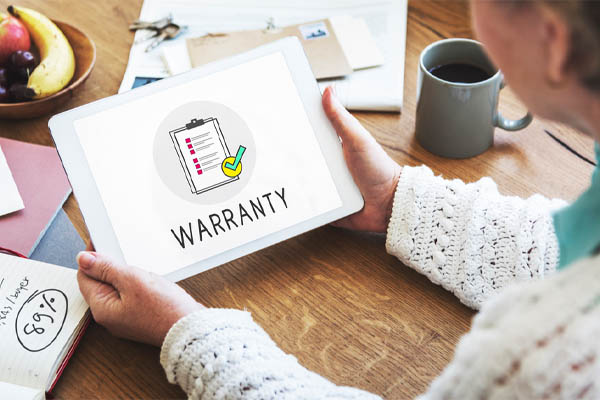
Typically, the Manufacturer’s Warranty is provided by the HVAC equipment manufacturer and comes as a standard inclusion with a new system purchase. It extends coverage for flaws in materials and workmanship over a specific period, typically ranging from one to ten years.
If the equipment encounters issues due to manufacturing defects within the stipulated timeframe, the manufacturer assumes responsibility for repairing or replacing the components without imposing any charges on the customer. When investing in a new HVAC system, understanding the duration and limitations of the Manufacturer’s Warranty holds significant importance.
Extended HVAC System Warranty
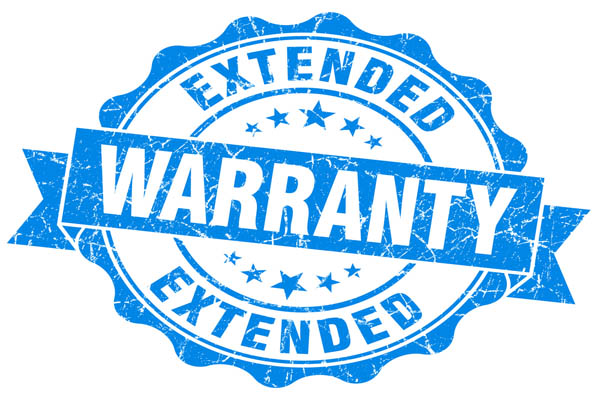
An Extended Warranty is an additional option available for customers to extend coverage beyond the standard Manufacturer’s Warranty. It offers a prolonged safeguarding period, providing extended reassurance.
The specifics of extended warranties can differ in terms of coverage duration and the range of issues they protect against. While these warranties can provide added protection against unanticipated breakdowns and repair expenses, customers should thoroughly evaluate the terms and costs of such extended warranties before making a decision.
Dealer’s HVAC Warranty
The Dealer’s Warranty is presented by the HVAC system’s dealer or installer, encompassing the installation process and workmanship involved in setting up the system. In case installation-related concerns emerge, the dealer promptly addresses and resolves them.
Grasping the terms of the dealer’s warranty, including its duration and the specific installation-related components it covers, is of utmost importance.
Related Article: How Does An Oil Heating System Work?
Labor Warranty
Distinct from the Manufacturer’s Warranty, the Labor Warranty is a separate coverage that handles labor expenses for necessary repairs or replacements during the warranty period. While the Manufacturer’s Warranty often accounts for component costs, the Labor Warranty ensures that customers are not burdened with labor charges when the system necessitates servicing or replacement.
A clear understanding of the Labor Warranty’s duration and scope is pivotal in determining the overall extent of coverage and potential out-of-pocket expenses for the customer.
Related Article: What is the Difference Between An Air Conditioner and A Heat Pump?
Essential Traits of a Strong HVAC Warranty
Comprehensive Protection
An effective HVAC warranty should offer comprehensive coverage that encompasses critical system components and major parts. This includes:
- Complete System Inclusion: Providing coverage for both indoor and outdoor units. Coverage for All Principal Parts: Encompassing elements like the compressor, condenser coil, blower motor, and other pivotal components.
- Incorporation of Labor and Installation: Ensuring that both the cost of a new part and the labor required for its installation are covered in case a covered component malfunctions.
Related Article: What’s The Difference Between A/C Condensers & Evaporator Coils?
Transferability
A valuable trait of a robust HVAC warranty is its transferability. This allows homeowners to transfer the remaining warranty coverage to the subsequent property owner if they decide to sell their house. This not only adds value to the property but also serves as an appealing feature for potential buyers.
Appropriate Duration of Coverage
The duration of the warranty holds substantial significance. A reliable HVAC warranty should provide a reasonable coverage period that aligns with the anticipated lifespan of the system. Standard Manufacturer’s Warranties generally span from one to ten years, while extended warranties can extend coverage beyond the standard period. Homeowners must select a warranty with a duration that caters to their requirements and offers adequate protection.
Related Article: Why Your Air Conditioner Is Not Removing Humidity
Absence of Unfair Limitations or Exclusions
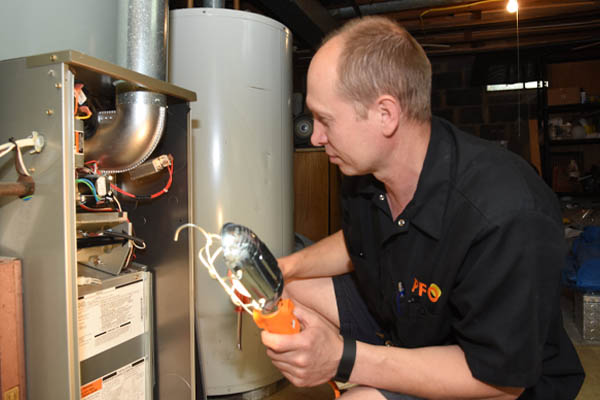
An authentic HVAC warranty should not feature unfair limitations or exclusions that might render the homeowner without coverage for common problems. Clear and transparent terms and conditions should be outlined to prevent misunderstandings. It’s crucial that the warranty does not exclude specific types of breakdowns or damages that are likely to arise during regular system usage.
Related Article: Reasons To Avoid Closing Registers For Temperature Control
Transparent Guidelines for Replacement
A sound warranty should include transparent guidelines regarding component or system replacement. It should clearly outline the scenarios under which replacements are covered, detail the claim filing procedure, and provide an estimated timeline for completing replacements. Such clarity empowers customers to understand their entitlements and anticipate the course of action in case a warranty claim is necessary.
Actions That Could Invalidate an HVAC Warranty
- Incorrect HVAC Installation: Deviating from the manufacturer’s specifications and guidelines during system installation can result in performance issues and potential damage. Many HVAC warranties expressly require a licensed professional to perform the installation to maintain warranty coverage. A warranty might lose validity if improper installation leads to system malfunctions or breakdowns.
- Neglecting Routine Heating & Cooling Maintenance: A majority of HVAC warranties mandate routine maintenance, including tune-ups and filter replacements, to keep the system in optimal working condition. Neglecting scheduled maintenance could result in issues falling outside the warranty’s scope. Adhering to the maintenance requisites outlined in the warranty sustains continuous coverage.
- Usage of Non-OEM Parts: Utilizing non-OEM (Original Equipment Manufacturer) parts for repairs or replacements could also void an HVAC warranty. Manufacturers engineer their systems to function optimally with specific components. Non-OEM parts might not seamlessly integrate with the system, causing problems or damage. Consequently, HVAC warranties frequently stipulate the use of authorized OEM parts exclusively for repairs and replacements.
- Failure to Register the Warranty: Some HVAC warranties necessitate homeowners to register their warranty within a specified timeframe post-installation. Neglecting this registration can lead to voiding the warranty’s coverage. Timely registration is imperative for the manufacturer to validate the warranty and offer requisite support for system issues. Meticulous reading of the warranty terms and timely registration circumvents unintentional invalidation.
- Unauthorized HVAC Repairs: Attempting to repair the HVAC system independently or engaging unauthorized technicians for repairs could nullify the warranty. HVAC warranties generally mandate that only licensed and authorized technicians carry out repairs and service work. Unauthorized repairs might exacerbate issues and compromise warranty coverage for future concerns.
Related Article: Ductwork Makes Banging Noise: Causes & Solutions
Additional Factors to Consider in HVAC Warranties
Homeowners should select an HVAC warranty that aligns with their needs, instills confidence, and safeguards their investment. Here are key pointers to bear in mind:
- Credibility of the Warranty Provider: Prior to choosing an HVAC warranty, conduct research to evaluate the credibility of the warranty provider. Opt for companies with a consistent track record of reliability, exceptional customer service, and prompt claims processing. Selecting a reputable provider guarantees that your warranty will be honored if you encounter any challenges.
- Warranty Registration Prerequisites: Certain HVAC warranties necessitate homeowners to register their systems with the manufacturer or warranty provider within a specific timeframe post-installation. Neglecting registration might lead to the warranty’s invalidation. Pay heed to these registration prerequisites to avert potential issues.
- Maintenance and Service Stipulations: Many HVAC warranties lay down requirements for regular maintenance and service to sustain warranty validity. Homeowners must adhere to these prerequisites, such as scheduling yearly maintenance with a certified HVAC technician. Disregarding maintenance might lead to voiding the warranty, making homeowners accountable for repair expenses.
- Cost vs. Coverage Evaluation: It’s essential to compare the warranty’s cost with the extent of coverage it furnishes to gauge its value. Some warranties might carry a higher upfront cost but provide more comprehensive coverage, while others might be more budget-friendly but offer limited protection.
Claiming an HVAC Warranty
Initiating a warranty claim for HVAC-related matters involves these fundamental steps:
- Understanding the Claim Process: Before filing a warranty claim, familiarize yourself with the claim process delineated in the warranty documentation. Comprehend the steps to be taken in case of system malfunction or breakdown. Different warranties may entail distinct procedures and requirements, such as contacting the warranty provider or the HVAC manufacturer’s customer service, submitting a claim form, or providing specific issue details.
- Maintaining Adequate Documentation: To substantiate a warranty claim, it’s crucial to retain all relevant documents, including the warranty certificate, purchase receipt, installation records, and any correspondence with HVAC technicians or contractors. Proper documentation serves as evidence of the system’s eligibility for warranty coverage and streamlines the claims process.
- Recording Regular HVAC Maintenance and Service: Regular maintenance is frequently a precondition to maintain warranty validity. Homeowners should maintain a record of all scheduled maintenance and service conducted by a certified HVAC technician. This documentation establishes that the system was duly cared for and significantly bolsters a warranty claim.
Related Article: 5 Things To Check On The HVAC System When Buying A New Home
The Role of HVAC Professionals in Warranty
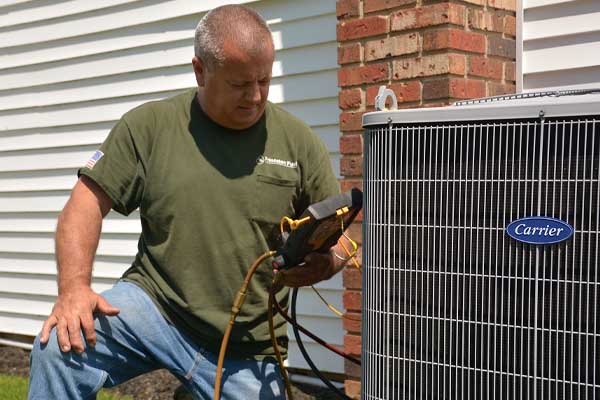
HVAC professionals play a pivotal role in preserving the integrity and effectiveness of HVAC warranties. Here are two significant aspects of their involvement:
Professional Installation & Its Impact on Warranty
The installation of the system is a pivotal factor that can substantially influence warranty coverage. Most HVAC warranties stipulate professional installation for validity. Opting for a certified and experienced HVAC contractor to handle the installation ensures adherence to the manufacturer’s specifications and industry standards.
Improper installation can lead to numerous problems, including diminished system efficiency, frequent breakdowns, and potential safety hazards. A warranty could be rendered void if system malfunctions are attributed to faulty installation, leaving homeowners accountable for repair costs.
Related Article: When To Repair Vs. Replace Your Heating System
Significance of Opting for a Certified and Licensed Contractor
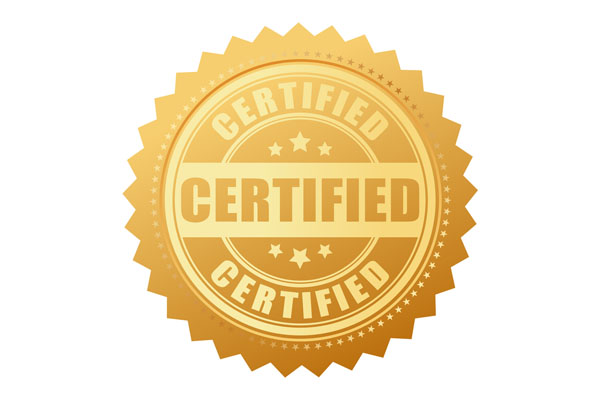
Choosing a certified and licensed HVAC contractor holds immense importance when dealing with warranty-related services. HVAC manufacturers often mandate that warranty-related work be performed solely by accredited technicians endorsed by their company.
Certified HVAC contractors undergo specialized training and possess expertise in specific systems and their components. They possess the skillset to accurately diagnose issues, execute repairs or replacements in accordance with manufacturer guidelines, and initiate warranty claims on behalf of homeowners.
Licensed contractors adhere to local building codes and regulations, ensuring the safety and compliance of HVAC installations and repairs.
In Conclusion
A robust HVAC warranty safeguards homeowners, bestows peace of mind, and offers financial protection in instances of system malfunctions or breakdowns. When choosing the appropriate warranty for your heating and cooling system, it’s crucial to grasp the various warranty types, their coverage, and potential constraints. By making informed decisions, opting for reputable warranty providers, and investing in a comprehensive HVAC warranty, homeowners can secure a well-functioning and efficient home climate system.
Related Article: What To Look For In A New Oil Boiler For Your Home
Reach Out to PFO Heating & Air Conditioning for All Your HVAC Needs
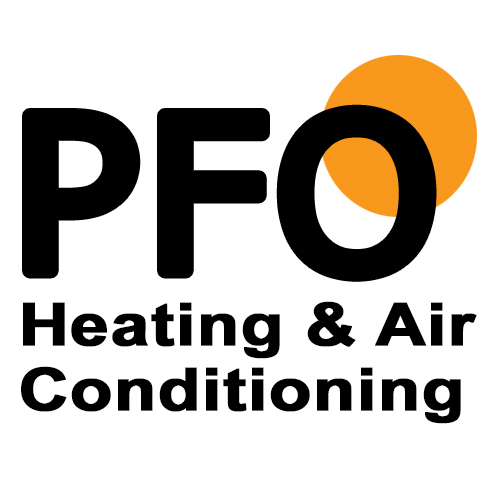
Proudly serving the Greater Princeton, New Jersey region, PFO Heating & Air Conditioning stands as the premier provider of heating and cooling services. Our team of highly skilled and certified technicians specializes in HVAC tune-ups, repairs, installations, replacements, and more. We take pride in delivering top-tier services to all our clients.
At PFO Heating & Air Conditioning, we understand the importance of a comfortable and energy-efficient home. That’s why we offer competitive pricing for our services. Our maintenance offerings are tailored to enhance comfort and reduce energy expenditures. If you’re in need of HVAC repairs or replacements, our knowledgeable technicians can recommend optimal solutions while respecting your budget. We stand firmly behind our work and guarantee your satisfaction.
Scheduling a service appointment with us is as simple as giving us a call. We provide complimentary, in-home estimates to facilitate well-informed decisions regarding your HVAC systems. You can confidently rely on PFO Heating & Air Conditioning for exceptional heating and cooling services that consistently exceed expectations.
Click here to contact us now or call us at (800) 253-9001 to find out more! Click the link to view our service area.



